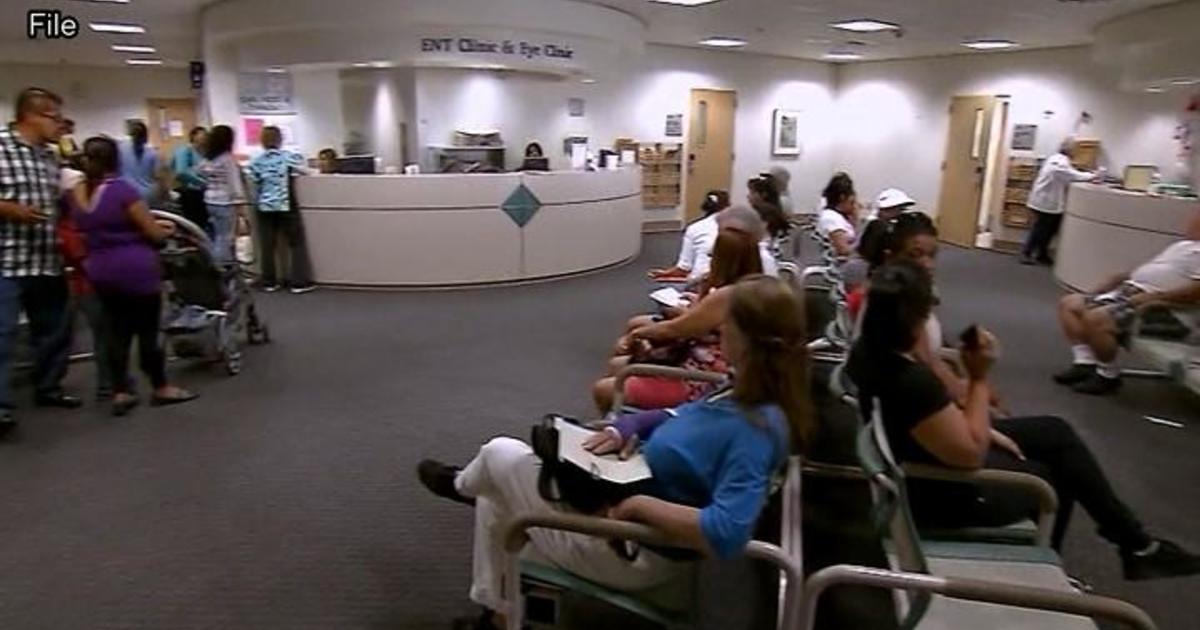COVID-19 Numbers Are Improving. Don't Let History Repeat Itself With Yet Another Resurgence, Doctors Say
(CNN) -- As Covid-19 numbers gradually improve, health experts have an urgent message: Don't get cocky and relax.
"We can't get overconfident. Every time we do and we put our guard down ... we get another surge with another variant," said Dr. Jorge Rodriguez, a viral researcher and internal medicine physician. "So yes, things are better. But they're far from over."
On average, 107,312 new cases were reported each day over the past week, according to data from Johns Hopkins University, the lowest since August 5.
Hospitalizations have dropped, too. About 71,325 patients are hospitalized with Covid-19, according to the US Department of Health and Human Services, a 12.7% decrease compared to last week.
"It does not signal the beginning of the end of this pandemic," Rodriguez said Monday. "What it signals is that we are now on the downswing here of this latest surge, this Delta surge. But we're still getting over 100,000 infections a day. And right now, the tide is higher than it was a year ago."
The daily Covid-19 death toll is a sobering reality check.
Over the past week, an average of more than 1,800 Americans died from Covid-19 every day, according to Johns Hopkins. Health experts say the vast majority of those deaths were preventable with vaccination.
'Let's focus like a laser'
Whether Americans can gather more safely this holiday season largely depends upon actions taken now, the director of the National Institute of Allergy and Infectious Diseases said.
"The best way to assure that we'll be in good shape as we get into the winter would be to get more and more people vaccinated," Dr. Anthony Fauci told CNN Monday.
Multiple times throughout the pandemic, Covid-19 numbers have dropped, only to surge again, sometimes with a new variant.
"We've just got to concentrate on continuing to get those numbers down, and not try to jump ahead by weeks or months and say what we're going to do at a particular time," Fauci told CBS Sunday. "Let's focus like a laser on continuing to get those cases down, and we can do it by people getting vaccinated."
As of Sunday, 55.9% of the US population has been fully vaccinated, according to CDC data.
Vaccines for younger kids might be within weeks
The US Food and Drug Administration said Friday its vaccine advisers will meet October 26 to discuss data from Pfizer's Covid-19 vaccine trial among children 5 to 11.
That does not necessarily mean children in that age group can start getting shots right afterward. The FDA vaccine advisers would have to first make a recommendation, and the FDA would vote on it.
Then, the CDC would have to sign off before children ages 5 to 11 could start getting vaccinated.
Some health experts say kids in that age group might be able to get their first shots by the end of October or November. But just like with adults, those children would need two doses.
While children who get Covid-19 often have less severe cases than adults, kids can still be vulnerable to serious illness and long-term effects, Fauci told CNN.
He said those are important reasons to vaccinate children.
"Look at the pediatric hospitals throughout the country, and you can ask any pediatric hospitalist, they're seeing a lot of children in the hospital with severe infection," Fauci told CNN on Monday.
"So, although relatively speaking for the rest of the epidemic, it's a lesser proportion, the fact is, it still can have a serious impact on children, not to mention the issue of long Covid," Fauci said.
The American Academy of Pediatrics reported Monday that new infections among children remains "exceptionally high," now making up almost 27% of all new cases reported nationwide.
Don't rely on a past infection or an unauthorized pill
Friday, the pharmaceutical company Merck said molnupiravir, an investigational antiviral drug made by Merck and Ridgeback Biotherapeutics, can reduce the risk of hospitalization or death from Covid-19 by half.
But full data from the molnupiravir trial had not yet been released or peer-reviewed. And it's not clear if or when the pill might be authorized by the FDA to fight Covid-19.
"It's not an alternative to vaccination," former FDA commissioner Dr. Scott Gottlieb said. "We still have to try to get more people vaccinated."
Vaccination is still the best way to reduce the risk of infection, hospitalization and death from Covid-19, Fauci said.
"The news of the efficacy of this particular antiviral (molnupiravir) is obviously very good news," he said. "It decreased the risk -- this pill did -- of hospitalizations and deaths by 50%. You know the way to decrease the risk by 100%? Don't get infected in the first place."
As for those assuming previous infection will keep them immune from Covid-19, a study published Friday in the journal The Lancet Microbe suggests protection may be short-lived.
"Reinfection can reasonably happen in three months or less," lead author Jeffrey Townsend, a professor of biostatistics at the Yale School of Public Health, said in a news release.
"Therefore, those who have been naturally infected should get vaccinated. Previous infection alone can offer very little long-term protection against subsequent infections," he said.
The-CNN-Wire
™ & © 2021 Cable News Network, Inc., a WarnerMedia Company. All rights reserved.



